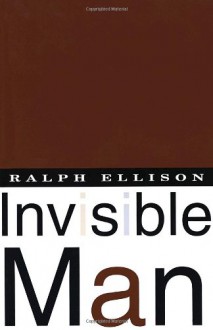

Prime Green CBD Oil Yet, thc is the one that is fundamentally liable for the results that appear in the brain when weed is ate up (in any structure). This is on the grounds that thc is psychoactive and that is the essential component that gives you the "high."then once more, cbd isn't psychoactive. Subsequently, it doesn't give any outcomes at the mind. What's more, it does now not concoct the "high", however then again, it gives a few outcomes at the casing which can be situated to be helpful and valuable in improving the decent of ways of life.
http://topcbdoilmart.com/prime-green-cbd-oil/

Well, OB was definitely right about this one. My attempt to read the text version was not nearly as exciting as listening to Joe Morton angrily declaiming in my ears. So I'm back to the audio, but it is slow going, because there is so much emotion that I can only take it in with very small sips.
I wish I could find a clip of him on one of the rants, but you can get an idea of his cadence and emotion in this sample of him reading Ellison's explanation of invisibility.

I first read H. F. Saint's novel thirty years ago. I recall the praise it received at the time for how well thought out the novel's exploration of the problems that an invisible person might face. When I read it for myself I was similarly impressed with the challenges Saint identifies (how does someone who's invisible drive a car, or feed themselves, or find regular housing?) and how the book's titular character overcomes them.
For decades, the novel remained a fond memory, one which I remembered mainly for its description of Halloway's challenges with invisibility. Then I came across a paperback copy in a used bookstore, and I decided to reread it to see how it held up.
Reading it again brought back a wave of nostalgia tempered by hindsight. In it, Nick Halloway, a yuppie securities analyst living in 1980s New York, visits a laboratory staging a demonstration of a new technology. When the test is sabotaged by student protestors, the resulting explosion turns Halloway and everything else in the building invisible. As he adjusts to his new condition, Halloway becomes the target of a small team of federal agents determined to exploit his new condition.
From there the novel becomes a cat-and-mouse game between Halloway and David Jenkins, the agent in charge of his team. Halloway has to find ways to elude their methodical attempts to locate and capture him. While this may seem like a trivial matter for someone who is now invisible, Saint emphasizes the problems invisibility creates in terms of doing even the most basic things which people today can address without a second thought. Soon Halloway finds himself cut off from his old life and driven from his apartment, forced to find housing and sustenance wherever he can. These challenges are at the heart of the book, and Saint's consideration of how Halloway overcomes them is one of its great strengths.
Yet what really drives the book is Halloway's conflict with Jenkins. Here Saint envisions an ideal foe for an invisible person: someone who is smart, patient, relentless and with the authority and resources necessary to hunt down someone who is little more than a specter. What makes Jenkins especially interesting as an antagonist is in how in many respects he is as invisible as Halloway, as Jenkins' anonymity and cover identities as an intelligence agent render him nearly as indiscernible to modern society. As a result Halloway finds himself constantly on the defensive, adding suspense to the plot and lending weight to his occasional triumphs over his tenacious opponent.
All of these elements explain why the book has such a fond place in my memory. But then I came upon the sex scenes. I had forgotten about those.
Halloway's battle with loneliness is one of the central themes of Saint's book, as his invisibility and his need to remain hidden isolate him from people even when he is in their midst. At two points in the book, however, Saint has Halloway's desperation drive him to engage in what amounts to sexual assault. Neither scene has aged well, and that the second assault leads to "consensual" sex (to the extent that the woman enjoys the experience with what she thinks is a ghost) doesn't redeem it but makes it worse. It definitely soured my memory of the book, and demonstrates how sometimes the past should stay in the past, even when it comes to a warmly-remembered novel.

I started this audio during my long drive this weekend and MY GOD my jaw was dropped through most of it. Everything about Joe Morton's performance just floored me.
The downside is that it's so dense with ideas and imagery and emotion that there is no way I can continue it solely on audio, since I'm normally listening while I multitask doing other things, so I won't have the luxury of staring blankly at a highway while spending 90% of my attention on what's soaking into my brain through my ears. Plus, I want to be able to stop and consider what I'm reading, and to look up some of the references.
So I've put the ebook on hold at the library, and will suspend the audio until my hold comes up and I can both read and listen to this together. Hopefully it'll only be a couple of weeks.